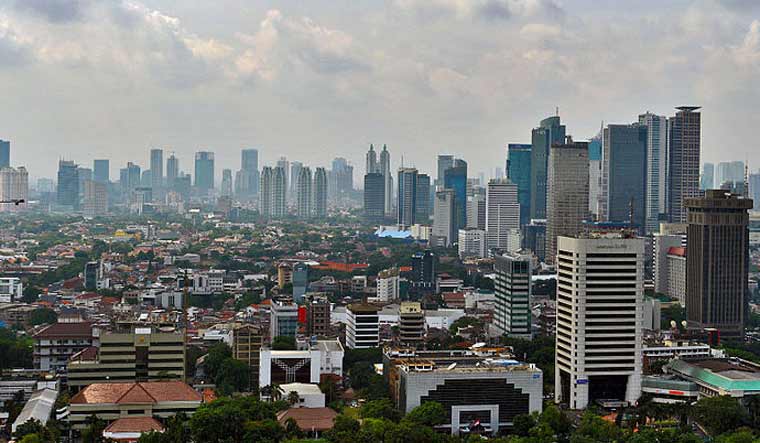 Jakarta, the congested Indonesian capital that is prone to natural disasters, is fast sinking | Wikimedia Commons
Jakarta, the congested Indonesian capital that is prone to natural disasters, is fast sinking | Wikimedia Commons
Jakarta is sinking. It is no longer news. Everyone knows it. But there are two very serious other talking points from this. One, the reason behind it. Rising sea levels at a few inches per year may not have seemed serious a decade ago. But now, it is forcing a country to shift its capital base as it fears the city won't be inhabitable in a few decades. Sea levels are rising and the danger it poses is already here. It is no longer something that could happen in the distant future. The second dilemma is that Jakarta isn't the only city that is sinking. Several other cities, too, are sinking with each passing second albeit at a slower rate than Jakarta. Groundwater depletion and global warming-led rise in sea levels are the two main factors contributing to this. Some cities, however, are sinking due to glacial effects. Let's take a look at them.
Mexico City
Although not next to any water body, this capital city is sinking thanks to groundwater extraction. Porous grounds are compressing due to the empty caverns left after ground water extraction. This has resulted in the city sinking at a rate which would be alarming for its residents in the next 50 years.
New Orleans
According to a 2016 study conducted by NASA, New Orleans will witness a sea level rise of almost 14 inches by 2040. The report also shows parts of the city sinking by two inches per year. The main causes attributed to this are groundwater extraction and continued land movement from glaciers.
Dhaka
Yet another capital city finding it ways underneath. Although the rate at which Dhaka is sinking is only half an inch per year, the Bay of Bengal, which lies right next to it, is rising much faster than the global average. Millions from the coastal regions have already begun evacuating making the slums overcrowded. To add to this, Dhaka, too, faces the threat of groundwater extraction.
Beijing
 [File] The city of Beijing is sinking as much as four inches every year | Reuters
[File] The city of Beijing is sinking as much as four inches every year | Reuters
The busy bustling capital city is sinking by as much as four inches in some areas every year. Like many other cities, Beijing, too, is facing the threat of sinking due to groundwater depletion. Heavy extraction of groundwater has led to the soil compacting and thus causing the area to sink.
Houston
Houston is another victim to sinking due to over-extraction of water. Authorities in Houston have tried to come up with measures to address the issue, but haven't been able to contain the problem properly as such. Certain areas of the city are sinking by almost two inches per year.
Lagos
Africa's most populous city, Lagos is extremely prone to flooding and the city has also seen its coastline eroding over the years. Global warming has spurred the rise in sea level which according to studies could reach levels inhabitable to its residents by the end of the century.
Washington
The capital city which houses the White House is also expected to be over six inches lower in the next 100 years. Unlike other cities, it is not groundwater extraction or rising sea level that is causing this city to sink. It is the ice age! Yes, a mile-high ice sheet formed millions of years ago had pushed the land beneath Chesapeake Bay upward. When the ice sheet melted thousands of years ago, the land started sinking.
London
 [File] London is slowly sinking due to glacial effects | AFP
[File] London is slowly sinking due to glacial effects | AFP
London, too, is sinking due to glacial effects. The bustling metropolitan city is gradually sinking as Scotland rises. A phenomenon called 'glacial isostatic adjustment' is what is causing the sinking. The incident goes back thousands of years when the weight of glaciers caused Scotland to sink and thereby pushing London to rise. Now Scotland is rising at a rate of 0.4 inches per year, while the south of UK is slowly sinking, though not at any alarming rate.
Venice
While groundwater depletion isn't a serious threat due to the low population level, rising sea levels poses a serious threat to this charming city. It's exposure to sea water is higher than any other city in this list.
Kochi
A report published in 2015 predicted that large portions of the city would be under water due to rising sea levels. Experts believe that the sea level could rise by as much as two meters within the next century. Sea level rise would have profound effects on land use and the coastal land forms leaving inland properties vulnerable.





No comments:
Post a Comment